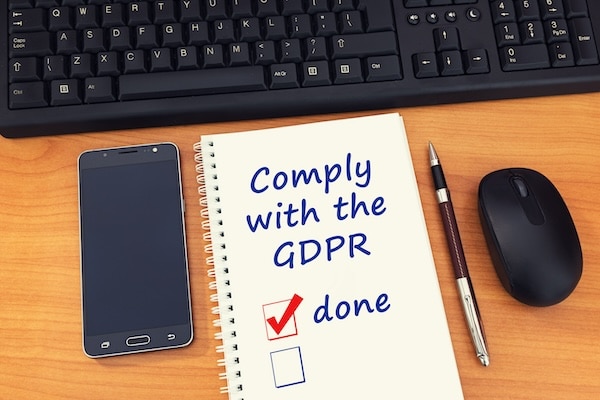Certified Data Protection Officer (DPO)
A Data Protection Officer (DPO) is an independent expert who plays a crucial role in ensuring that organisations process personal data responsibly and in compliance with UK data protection legislation and regulations such as the UK GDPR.
The Key Responsibilities of a DPO
Information and Advice: The DPO informs and advises the organisation and its employees about their obligations under UK data protection laws. However, they also play a very important role in the commercial side of an organisation, contributing to the client, employee, and supplier onboarding procedures. As a key day-to-day contact for all internal and external stakeholders, a certified Data Protection Officer adds value in many different ways.
Co-operation with Authorities: The DPO serves as the primary contact point for the Information Commissioner’s Office (ICO) and other relevant professional and supervisory authorities on all data protection related matters. This takes a lot of pressure away from the board and the organisation at large.
Point of Contact for Individuals: The DPO acts as a point of contact for all individuals (data subjects), whose personal data is processed by the organisation. This involves responding to enquiries, requests for access to personal data, and any potential concerns about the ways in which personal data is being processed.
Monitoring Compliance: The DPO monitors the organisation’s compliance with UK data protection laws and the UK GDPR. The role involves conducting data privacy audits, reviewing data processing activities, drafting policies and procedures, and ensuring that appropriate technical and organisational measures are in place, from a security standpoint, to protect the personal data of data subjects.
Data Protection Impact Assessments (DPIAs): The Certified Data Protection Officer sits at board level in an advisory and review capacity, offering certified and independent advice to the board with regards to the implementation of any major change to the way personal data is processed within the organisation. A DPIA is a fantastic tool, which assesses the potential risks associated with data processing activities and help organisations mitigate those risks, all with the expert and insightful input of the DPO.
Do you need to appoint a DPO?
Under the UK GDPR, certain organisations are legally required to appoint a DPO. These include public authorities, organisations that engage in large-scale systematic monitoring of individuals, and those that process special category (sensitive) personal data on a large scale.
Even if not legally mandated, many organisations choose to appoint a Certified Data Protection Officer voluntarily to enhance their data protection practices and demonstrate their commitment to privacy. They see the DPO as a crucial part of the senior leadership team and a worthwhile investment, as they add value in so many ways, and reassure clients, colleagues, prospects, and suppliers alike.

Why appoint an outsourced DPO through CSRB?
Appointing a certified, and independent Data Protection Officer (DPO) through CSRB offers several advantages, particularly for small to medium-sized enterprises (SMEs) or organisations that may not have the resources or expertise to appoint an internal DPO:
Return on Investment: Appointing an external DPO is a much more cost-effective alternative to employing a full-time, in-house specialist. With the internal option you have recruitment, training, and employment considerations. Whereas with the outsourced option from CSRB you get the benefit on Day One of a fully certified DPO, who can start adding value, via our monthly retainer DPO option.
Expertise and Experience: CSRB’s Certified Data Protection Officers are experienced data protection professionals with in-depth knowledge of the UK GDPR, UK and international data protection legislation, and the experience of supporting other organisations in the business world, understanding the commercial requirements of an organisation versus that of their compliance requirements. Our DPOs complete monthly Continual Professional Development (CPD) learning and stay up-to-date with the latest legal developments and best practices, ensuring your organisation remains compliant.
Flexibility and Scalability: Outsourced DPO services can be tailored to your organisation’s specific needs and can be easily scaled up or down as required. This flexibility is particularly beneficial for organisations that are experiencing a period of growth or a period of transition. Our monthly support starts from one day per month, with flexible options, dependent on your specific requirements.
Objectivity and Independence: CSRB’s DPOs offer unbiased advice and guidance, free from internal conflicts of interest. They can objectively assess your organisation’s data processing activities and recommend necessary changes to ensure compliance.
Access to Resources and Tools: CSRB have access to a wide range of resources and tools, such as data protection software, industry codes of conduct and best practice, policies and procedures, and training materials. These resources coupled with our expertise can help streamline your compliance efforts and save valuable time.
Providing ongoing Training: Our Certified Data Protection Officers can offer data privacy induction training for new starters, key role training, and whole organisation training. This ensures our clients meet their data controller responsibilities, whilst also staying informed about any changes in UK data protection regulations and best practice.
Focus on Core Business Activities: Outsourcing the DPO role allows your staff to focus on their core responsibilities, rather than seeing them burdened with an additional role, that includes complex business critical duties, that require a wealth of data privacy experience to deliver.

